Conferences
20 Settler Colonialism, Slavery, and the Problem of Decolonizing Museums; builds on recent research on the role of ethnographic museums in the development and representation of knowledge about people and processes; noon-6:30 p.m.; in-person and online; info and register: https://decolonizingmuseums.com/ (Center for Experimental Ethnography, Penn Museum). Through October 23, noon-3 p.m.
Exhibits
Penn Museum
Online and in-person events. Info: https://www.penn.museum/calendar.
22 Virtual Global Guide Tour: Mexico & Central America Gallery; 2:30 p.m.
23 Global Guide Tour: Mexico & Central America Gallery; 2:30 p.m.
24 Rome Gallery Tour; 11 a.m.
Global Guide Tour: Africa Galleries; 2:30 p.m.
Films
20 The Last Laugh; includes Q&A with director Ferne Pearlstein; 7-9:30 p.m.; room 401, Fisher-Bennett Hall (Cinema Studies).
21 Cactus Flower; 7 p.m.; online screening; tickets: https://pennlivearts.org/event/cactus-flower (Penn Live Arts).
Fitness & Learning
Graduate School of Education (GSE)
Online events. Info: https://www.gse.upenn.edu/news/events-calendar?date=2021-10.
19 International Student Virtual Information Session; 7 p.m.
20 Executive Doctorate in Higher Education Management Program Information Session; 4 p.m.
21 One Penn GSE Community: Diversity, Equity, Inclusion & You; 7 p.m.
22 Friday Virtual Chats with Admissions; noon.
IES Predoctoral Program Seminar; Wendy Chan, GSE; 1 p.m.
25 Better Schools for Everyone Are Possible: Stories and Lessons from Immigrant Organizers & Educators; 5:30 p.m.
Virtual Information Session: Mid-Career Doctoral Program; 8 p.m.
LGBT Center
In-person and online events. Info: https://tinyurl.com/lgbt-center-calendar.
20 LGBTQ+ U.S. History In Brief; noon; Goodhand Room, LGBT Center.
22 Staff and Facul-TEA; 1 p.m.; online.
26 Fall Semester Writers Room; 10 a.m.-2 p.m.; LGBT Center.
Penn Carey Law School
Online events. Info: https://www.law.upenn.edu/newsevents/calendar.php#!view/all.
19 Lambda Law (LGBTQ+) Panel; 3 p.m.
20 Office of Equity and Inclusion Webinar for JD Applicants; noon.
21 Native American Law Student Association (NALSA) Panel; 6 p.m.
Readings & Signings
21 Brave New Home; Diana Lind, Arts + Business Council for Greater Philadelphia; 6 p.m.; room B1, Meyerson Hall; register: https://tinyurl.com/lind-reading-oct-21 (City & Regional Planning).
Special Events
21 Colleague Memorial Service for Scott Enderle; colleagues in the department of English, the Price Lab, and Penn Libraries remember Scott Enderle; 3-5 p.m.; roof deck, Penn Museum (English, Penn Libraries, Price Lab).
23 Culturefest: Día de los Muertos; full-day festival that offers fun for the whole family, including an arts activity, altar competition, artisan market, dance and music performances, and an enormous traditional altar installation by local artist Cesar Viveros; 11 a.m.-4 p.m.; Penn Museum; free with museum admission; info: https://www.penn.museum/calendar/964/culturefest (Penn Museum).
Talks
19 Distributed Estimation Under Privacy and Communication Constraints; Ayfer Ozgur, Stanford; 11 a.m.; Zoom meeting; join: https://upenn.zoom.us/j/2822214402 (Electrical & Systems Engineering).
Proteomic Clues to Cell Organization; Martin Wühr, Princeton; 3:30 p.m.; Carol Lynch Lecture Hall, Chemistry Complex, and Zoom; join: https://upenn.zoom.us/j/97682459971 (Chemistry).
20 The Multispecies Kinesthetic: Theorizing Epidemic Media; Bishnupriya Ghosh, UC Santa Barbara; noon; Zoom meeting; register: https://tinyurl.com/ghosh-talk-oct-20 (Cinema Studies).
Spatial and Dynamical Control in Metabolic Engineering Using Organelle Engineering and Optogenetics; José Avalos, Princeton; 3:30 p.m.; Wu and Chen Auditorium (Chemical and Biomolecular Engineering).
Fels Racial Equity and Social Justice Conversation Series; Derek Green, Philadelphia City Council; 6 p.m.; online event; register: https://www.fels.upenn.edu/events/derek-green (Fels Institute of Government).
21 Topological Physics: from Photons to Electrons; Mohammad Hafezi, University of Maryland; 12:30 p.m.; auditorium, LRSM Building (Materials Science & Engineering).
Phage and Robotics-Assisted Biomolecular Evolution; Emma Chory, MIT; 3:30 p.m.; room 216, Moore Building (Bioengineering).
Queer Faith: Reading Promiscuity and Race in the Secular Love Tradition; Melissa Sanchez, English; 3:30 p.m.; room 204, Claudia Cohen Hall (Religious Studies).
Leveraging Rare Respiratory Disorders to Illuminate Pulmonary Physiology; Raghu Chivukula, Harvard; 4 p.m.; BlueJeans meeting; join: https://bluejeans.com/574742202120/831444129093?src=join_info (Penn-CHOP Lung Biology Institute).
Invisible China: How the Urban-Rural Divide Threatens China’s Rise; Scott Rozelle, Stanford; 4:30 p.m.; room 418, PCPSE (Center for the Study of Contemporary China).
22 Kinetic Theory for Superparameterization of Sea Ice Dynamics; Dimitris Giannakis, Dartmouth; 2 p.m.; PICS conference room, 3401 Walnut St. (Penn Institute for Computational Science).
Modeling and Detection of Thermophiles in the Subseafloor; James Holden, University of Massachusetts Amherst; 3 p.m.; room 358, Hayden Hall (Earth & Environmental Studies).
25 Reconstructing the Experience of the Divine in Ancient Mesopotamia: An Argument for Direct Perception, Decentralized Cognition, and Sensorial Plasticity; Anastasia Amrhein, Bryn Mawr; noon; room 345, Penn Museum (Anthropology).
From Egyptian Gold to Chichimeca Silver: Extractive Theory and Praxis in 16th Century Mexico; Iris Montero-Sobrevilla, Gates Cambridge; 3:30 p.m.; in-person and Zoom; info: https://hss.sas.upenn.edu/events/hss-workshop-iris-montero-sobrevilla (History & Sociology of Science).
Design for Chosen Land: Building at Sabbathday Lake Shaker Village in the 21st Century; Pamela Hawkes, Scattergood Design; 6 p.m.; room B3, Meyerson Hall; register: https://tinyurl.com/hawkes-talk-oct-25 (Historic Preservation).
26 Robotics Goes Soft: Challenges and Achievements, for New Robotics Scenarios; Cecilia Laschi, National University of Singapore; 10 a.m.; Zoom meeting; info: peterlit@seas.upenn.edu (Mechanical Engineering & Applied Mechanics).
Prevention and Resolution of R Loop-Mediated Transcription-Replication Conflicts; Andres Aguilera, University of Seville; noon; GoToWebinar meeting; join: https://global.gotomeeting.com/join/227215405 (Wistar Institute).
Block the Vote: Historical and Contemporary Challenges to Voting Rights; panel of speakers break down the obstacles that voters face; 1:30 p.m.; Zoom meeting; register: https://tinyurl.com/block-the-vote-oct-26 (Penn Alumni).
Economics
In-person events. Info: https://economics.sas.upenn.edu/events.
20 An Economy of Neural Networks: Learning from Heterogeneous Experiences; Artem Kuriksha, economics; noon; room 100, PCPSE.
Competition Under Social Interactions and the Design of Education Policies; Claudia Allende, Stanford; 3:30 p.m.; room F45, Huntsman Hall.
Specialization in a Knowledge Economy; Yueyuan Ma, economics; 4 p.m.; room 100, PCPSE.
22 Seniority and Sovereign Default; Adrien Wicht, European University Institute; noon; room 100, PCPSE.
25 Social Learning with Heterogeneous Preferences; Pedro Brandão Solti, economics; noon; room 101, PCPSE.
26 State Dependence and Neighborhood Persistence; Jungsoo Yoo, economics; noon; room 101, PCPSE.
Mathematics
In-person and online events. Info: https://www.math.upenn.edu/events.
20 (In)stability of Minimal Surfaces; Otis Chodosh, Stanford; 3:45 p.m.; room 4E17, DRL and Zoom.
22 Canonical Heights on Shimura Varieties and the Andre-Oort Conjecture; Ananth Shankar, University of Wisconsin; 3:30 p.m.; Zoom.
Middle Eastern Studies
In-person events. Info: https://mec.sas.upenn.edu/events.
21 Social Change and Contentious Politics; Joel Beinin, Stanford; Rashid Khalidi, Columbia; Sean Yom, Temple; 4:30 p.m.; room 250, PCPSE.
Nursing
BlueJeans meetings. Info: https://www.nursing.upenn.edu/calendar/view/month/date/20211001.
20 Extraordinary or Ordinary? Nurses’ Work in China from Professionalization to SARS-CoV2; Nicole Elizabeth Barnes, Duke University; 4 p.m.
Penn Dental
In-person and online events. Info: https://www.dental.upenn.edu/news-events/events/.
19 AI in Practice: Artificial Intelligence, Real Dentistry; Kyle Stanley, Pearl; 6 p.m.; Zoom meeting.
20 Disability Rights Under ADA and the Impact on Private Dental Practice; Michael Ragan, Ragan Orthodontics; 5:30 p.m.; Zoom meeting.
21 C3-Targeted Therapy in Periodontal Disease: Moving Closer to the Clinic; John Lambris, medicine; noon; Cheung Auditorium, Levy Building and Zoom.
22 How to Train a TMJ Surgeon: A Perspective; Ron Aronovich, St. Joe’s Trinity Health; 7 a.m.; Zoom meeting.
Sociology
In-person events. Info: https://sociology.sas.upenn.edu/.
20 Asian Americans and Affirmative Action Policy; Van Tran, CUNY; noon; room 150, McNeil Building.
22 Translating Authentic Selves Into Authentic Applicants: Private College Consultants, Race, and Class in Selective College Admissions; Tiffany Huang, sociology; noon; room 367, McNeil Building.
--
AT PENN Calendar
To submit events for October calendar updates or upcoming AT PENN calendars, email almanac@upenn.edu.
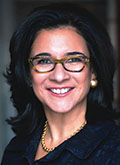
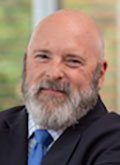 Suicide is a leading cause of death in the United States that disproportionately affects minority and disenfranchised communities, including Black, Hispanic, and LGBTQ populations. Yet, these groups often are not included in suicide prevention research. In an effort to reduce disparities and increase the understanding of suicide, the National Institutes of Health awarded Penn Medicine researchers a grant of more than $14 million over the next five years to develop the Penn Innovation in Suicide Prevention Implementation Research (INSPIRE) Center.
Suicide is a leading cause of death in the United States that disproportionately affects minority and disenfranchised communities, including Black, Hispanic, and LGBTQ populations. Yet, these groups often are not included in suicide prevention research. In an effort to reduce disparities and increase the understanding of suicide, the National Institutes of Health awarded Penn Medicine researchers a grant of more than $14 million over the next five years to develop the Penn Innovation in Suicide Prevention Implementation Research (INSPIRE) Center.

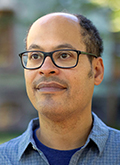 Angela Gibney and Daniel Krashen have joined Penn Arts & Sciences as Presidential Professors of Mathematics.
Angela Gibney and Daniel Krashen have joined Penn Arts & Sciences as Presidential Professors of Mathematics. 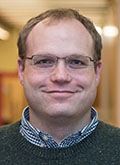 Jonathan Scott Enderle, PhD’11, a former digital humanities specialist at Penn Libraries, died on September 11. He was 42.
Jonathan Scott Enderle, PhD’11, a former digital humanities specialist at Penn Libraries, died on September 11. He was 42. Phoebe Resnick, former director of public relations at Penn Museum, died on September 25 of lung cancer. She was 85.
Phoebe Resnick, former director of public relations at Penn Museum, died on September 25 of lung cancer. She was 85. 
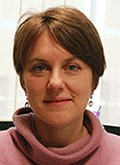 Yong Chen, an associate professor of biostatistics, has won a 2021 Titan Award for Methodological Research from the Observational Health Data Sciences & Informatics program, based at Columbia University. The Award for Methodological Research recognizes extraordinary contributions in the development or evaluation of analytical methods for clinical characterization, population-level effect estimation, or patient-level prediction. Dr. Chen’s research focuses on integrating fundamental statistics principles into quantitative methods for tackling key challenges in modern biomedical data.
Yong Chen, an associate professor of biostatistics, has won a 2021 Titan Award for Methodological Research from the Observational Health Data Sciences & Informatics program, based at Columbia University. The Award for Methodological Research recognizes extraordinary contributions in the development or evaluation of analytical methods for clinical characterization, population-level effect estimation, or patient-level prediction. Dr. Chen’s research focuses on integrating fundamental statistics principles into quantitative methods for tackling key challenges in modern biomedical data. Penn Nursing’s Susan Renz, primary care program director and practice associate professor in the department of family and community health, will receive a 2021 Distinguished Gerontological Nurse Educator award from the National Hartford Center of Gerontological Nursing Excellence (NHCGNE). The awards will be presented at the NHCGNE Leadership Conference to be held virtually, October 26 – 28, 2021.
Penn Nursing’s Susan Renz, primary care program director and practice associate professor in the department of family and community health, will receive a 2021 Distinguished Gerontological Nurse Educator award from the National Hartford Center of Gerontological Nursing Excellence (NHCGNE). The awards will be presented at the NHCGNE Leadership Conference to be held virtually, October 26 – 28, 2021.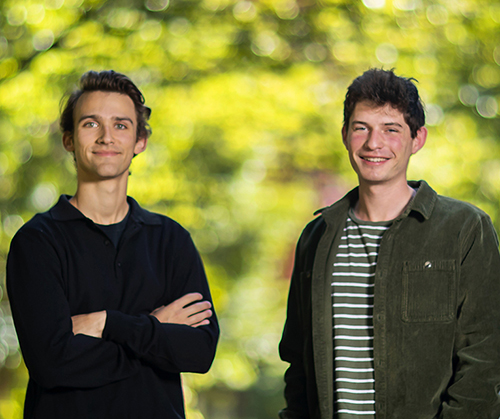 It was toward the end of their 7,300-mile journey across 23 states, on a quest to interview young adults about how the pandemic has changed their lives, when the two University of Pennsylvania students were faced with a decision: Should they go to the high school prom in Circleville, Utah?
It was toward the end of their 7,300-mile journey across 23 states, on a quest to interview young adults about how the pandemic has changed their lives, when the two University of Pennsylvania students were faced with a decision: Should they go to the high school prom in Circleville, Utah? 
